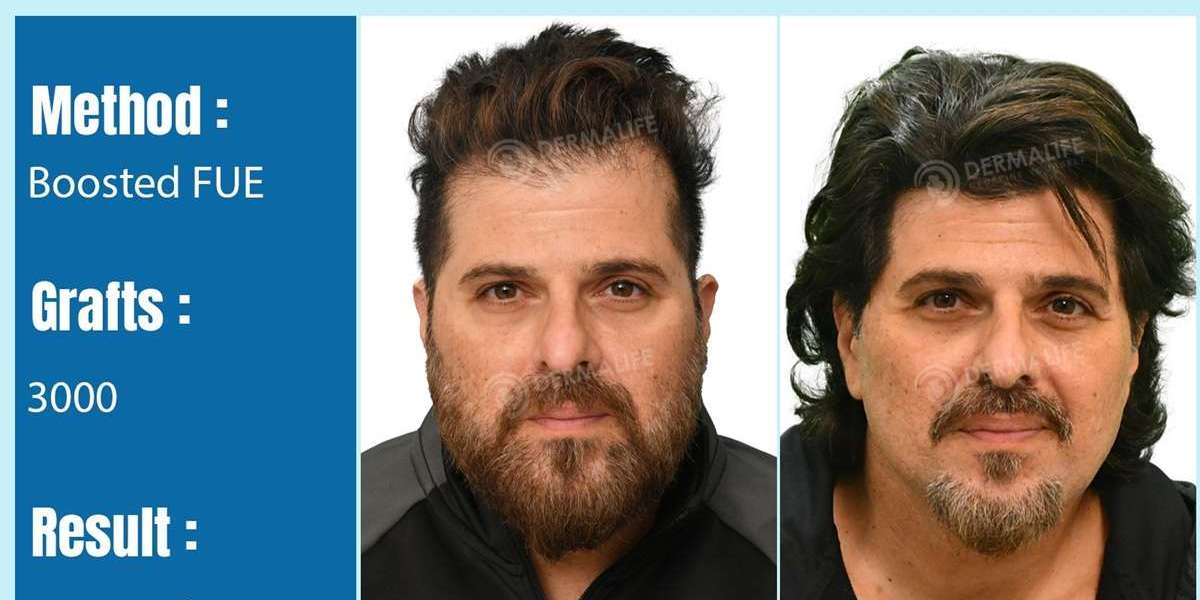Hair loss can significantly impact one’s confidence and self-image. As a practicing dermatologist and celebrity hair transplant surgeon in Delhi, I’ve seen first-hand how transformative a successful hair transplant can be—not just physically but emotionally. However, as with any medical procedure, it's important for patients to be informed about all aspects of the treatment, including the potential side effects.
Most patients approach Dermalife – Delhi's top hair transplant clinic – with questions like:
"Doctor, does a hair transplant have side effects?"
The short answer is: Yes, but minor, temporary, and easily managed with proper care and advice.
Let me tell you about the common and rare side effects, what to expect, and how we at Dermalife provide patient safety and satisfaction from consultation to full recovery.
Common & Mild Side Effects of Hair Transplant
Most patients have only mild and transient side effects after a hair transplant. These are all a part of the natural healing process of the body and generally settle down within a few days to a few weeks.
1. Pain and Discomfort
Some degree of pain or discomfort will be experienced in the donor and recipient sites after surgery. At Dermalife, we keep this under control with prescribed pain medication and through the use of minimally invasive methods like FUE (Follicular Unit Extraction) and Boosted FUE.
2. Swelling
Swelling of the forehead, scalp, or even eyelids occurs often following the transplant. The swelling, in most cases, occurs 1–3 days following the procedure and can reduce in 3–5 days. We give post-op instructions and medication that serves to minimize swelling and facilitate quicker recovery.
3. Itching
When the scalp starts to heal, patients commonly develop itching in the grafted area. This is a good sign that healing has begun. Scratching should be avoided so that grafts are not dislodged. Medicated lotions and sprays can help to reduce the feeling.
4. Numbness or Tingling
Temporary numbness or tingling is possible as a result of irritation of the nerves in the treated area. It will recover on its own within a few weeks to a few months. It is not permanent and doesn't impact the final result.
5. Minimal Bleeding
Some slight bleeding after the procedure is usual. At Delhi's hair transplant center, we maintain sterile technique and correct post-op dressing to manage bleeding as well as graft security.
Infrequent but Potential Side Effects
Although rare, there are some side effects that patients need to know about. Selecting a skilled hair transplant surgeon in Delhi minimizes the risk of these complications significantly.
1. Infection
This is unlikely with proper hygiene and sterile practices. We have international safety and sanitation standards at Dermalife, so infection is very unlikely. Patients are also given antibiotics prophylactically.
2. Scarring
With advanced methods such as FUE, scarring is minimal. Yet, with FUT (strip method), linear scarring in the donor region can happen. We mostly employ scar-free FUE techniques at Dermalife to eliminate this issue.
3. Unnatural Hair Growth or Poor Density
Incorrect placement of grafts or substandard planning may result in patchy or unnatural hairlines. This usually occurs in inexperienced clinics. Since I am a celebrity hair transplant surgeon in Delhi, I personally create every hairline with artistic skill and tailor the procedure according to the facial contour, age, and expectation of every patient.
4. Shock Loss
Some existing hair in the area of the transplant may temporarily fall out—this is known as shock loss. This is typically 2–6 weeks following the transplant and returns within 3–6 months. It is a reversible and temporary period and not a reason for concern.
Avoiding Side Effects: Why Surgeon Skill Counts
Most side effects can be prevented by adequate planning, technique, and post-operative care. That is why choosing the right hair transplant physician in Delhi is important. At Dermalife, our protocol consists of:
Detailed patient evaluation
Personalized hairline design
Utilization of high-quality microsurgical instruments
Minimal trauma to the neighboring follicles
Ongoing care and follow-up
Dermalife patients are advantaged by my years of experience treating not only ordinary people but also celebrities and personalities who require flawless and invisible results.
Hair Transplant Price in Delhi – What do you need to know?
While considering side effects, patients also inquire about the hair transplant price in Delhi. With Dermalife, pricing is absolutely transparent and honest.
Price begins with ₹45,000 for 1000 grafts
For 2000 grafts, the average price is ₹70,000
This includes pre-treatment consultation, graft harvest via FUE/Boosted FUE, and necessary post-treatment instructions. We do not compromise on quality at any cost, even while keeping prices within reach.
Opting for the less expensive alternatives can expose you to higher risks of complication. I've seen numerous patients who had procedures done somewhere else with substandard results, and then came to Dermalife seeking correction.
Last Words: Are Side Effects a Deal-Breaker?
No—if you are in the hands of a skilled professional.
Side effects of hair transplant procedures are generally minimal and temporary. With well-executed care and technique, they may be avoided or treated easily.
As a Delhi celebrity hair transplant surgeon and dermatologist, I recommend that my patients keep their eyes on the ultimate prize: natural growth, regained confidence, and a long-lasting outcome.
Schedule Your Consultation at Dermalife
In case you are looking to get a hair transplant and desire a secure, science-approved, and result-oriented experience, I invite you to consult with me at Dermalife Hair and Skin Clinic, which is among the top hair transplant centers in Delhi.














